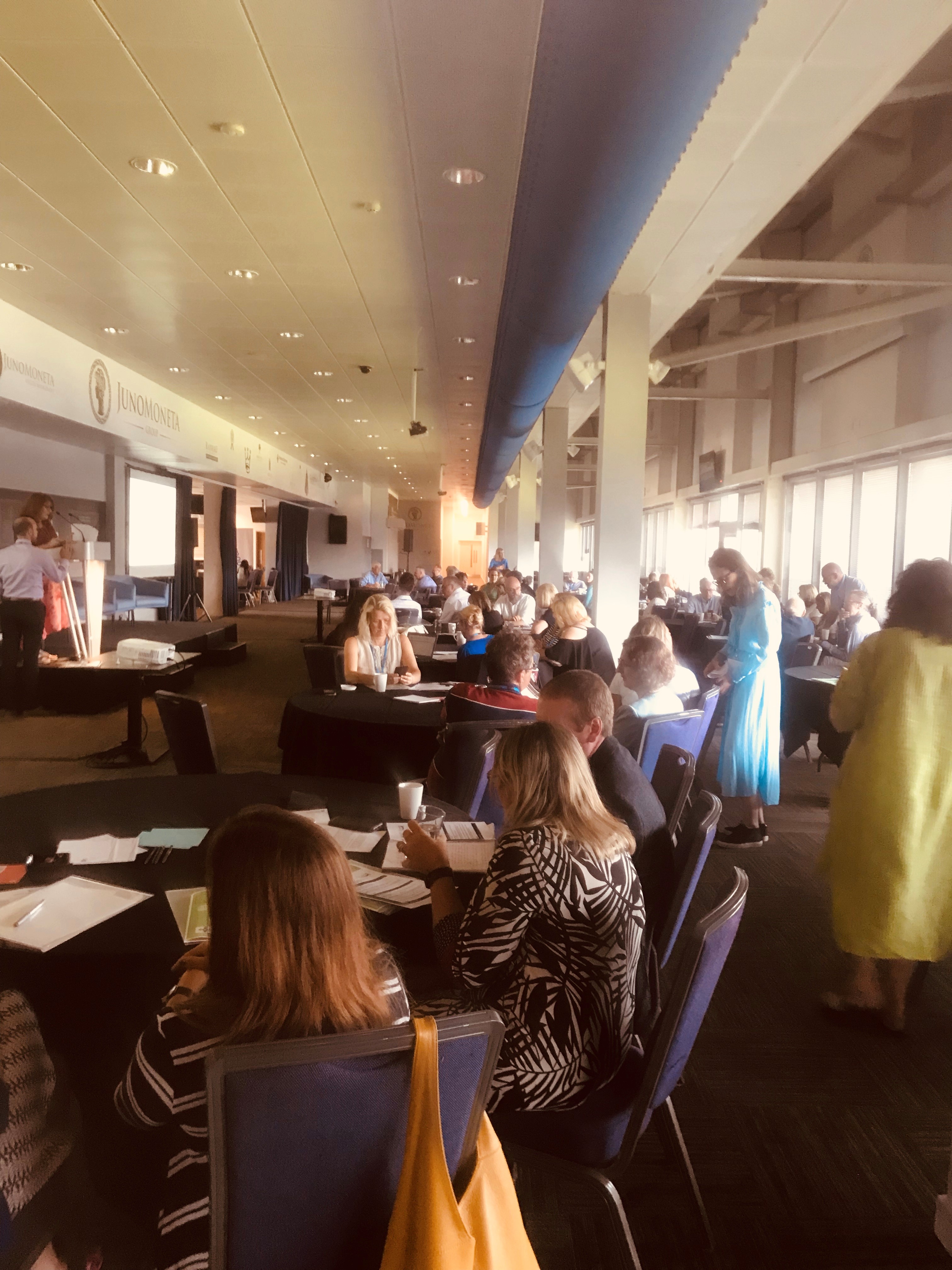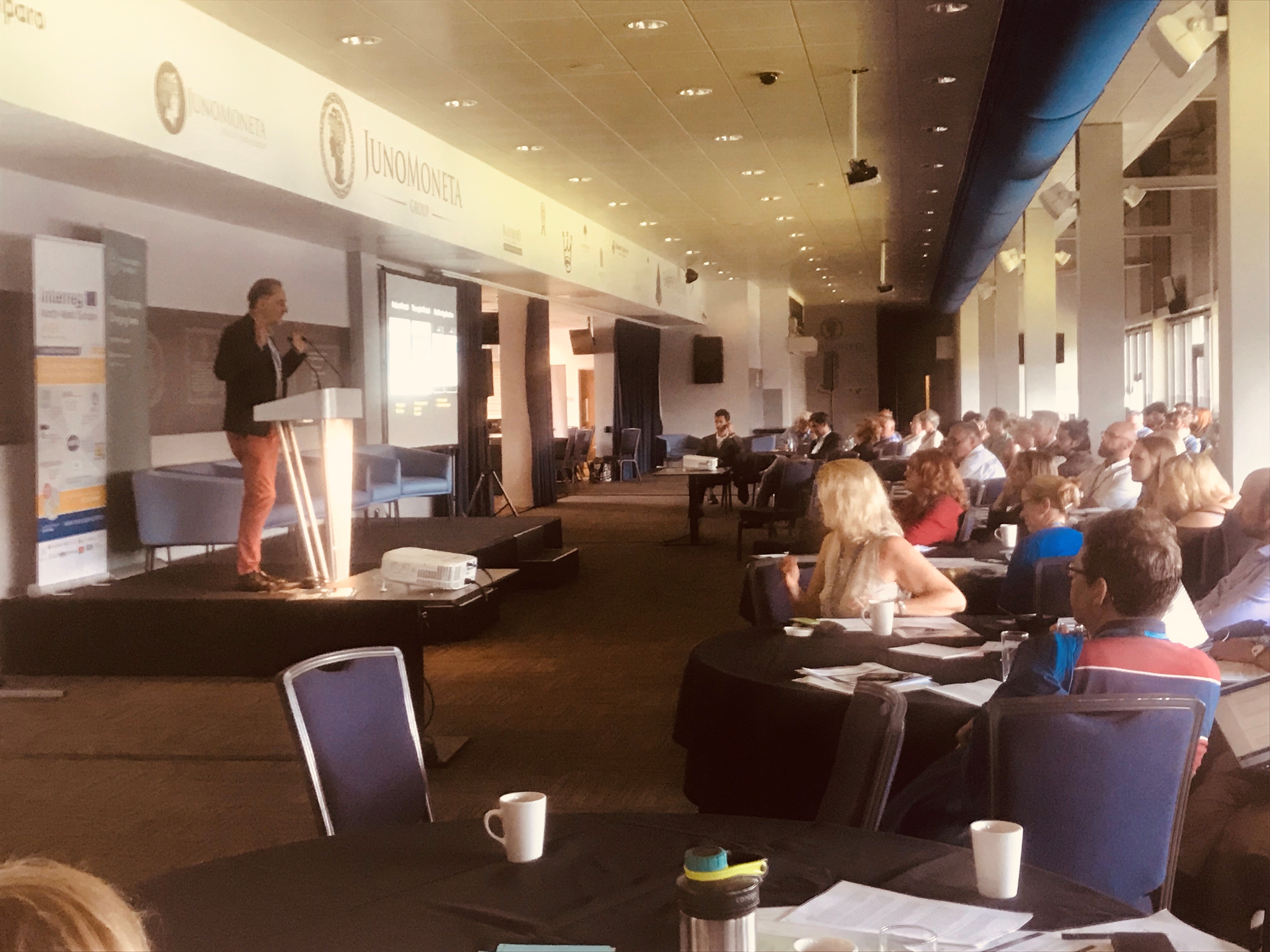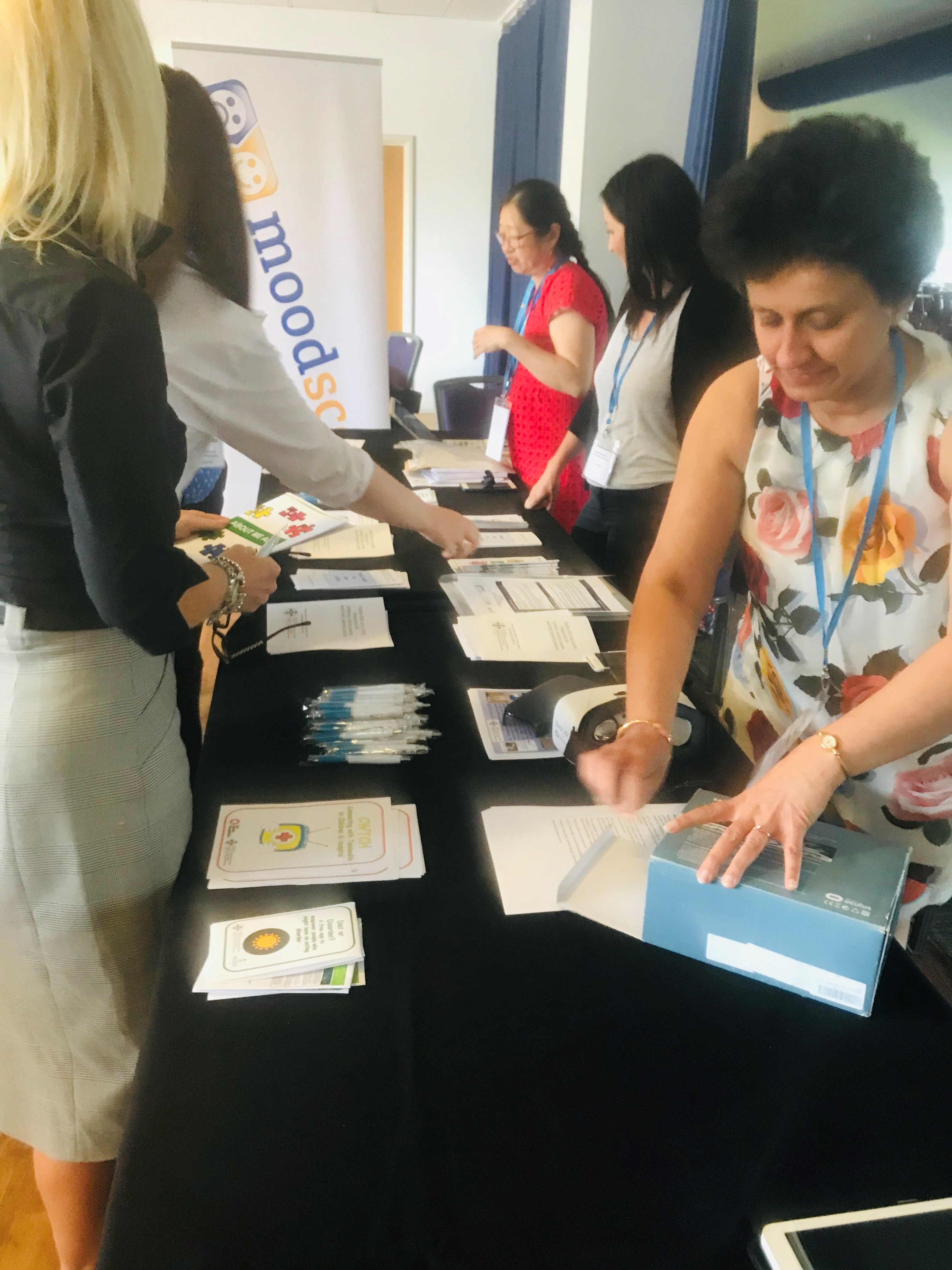On July 4th 2019, the Mental Health Foundation, the UK partner in the eMEN project, organised a seminar Digital Mental Health: Increasing Access and Equity in Cardiff, Wales. The seminar was organised in collaboration with the Public Health Wales 1000 Lives Mental Health and Learning Disability team. Carol Shillabeer, CEO Powys teaching Health Board, opened the day. Delegates were informed that Wales is well placed to incorporate digital technology into mental health care and that digital technology can play a key role in mental healthcare.
Expert presentations focussed on recent developments in digital mental health, and explored how such evidence-based technologies can offer innovative and increased access to high-quality mental health care, including for groups with a higher risk of developing mental health problems, and those living further away from more traditional service provision. It also explored issues of the effectiveness and accessibility of digital mental health technologies.
Addressing the issue of quality of mental health apps, Helen Northmore, Programme Manager, Digital Health Ecosystem Wales, reported that NICE has launched an evidence standards framework for digital health technologies and Health Technology Wales and the Digital Health Ecosystem are looking at how it can be used in Wales. Ms Northmore works towards make it easier and faster to adopt digital healthcare technology. However, conversations are slow in the NHS. In terms of evaluation, manufacturers are not clear on what evidence they need to produce. Across the whole sector we find a huge number of applications, but insufficient evidence to support their effectiveness. The importance of evaluation and standards must be emphasised.
Professor Ricardo Araya, Professor of Global Mental Health and academic lead of the Global Mental Health Research Group, King’s College London, spoke about the recent progress and challenges in Global eMental Health. With the rapidly growing ‘industry’ of digital solutions to help reduce the treatment gap in mental health, most of these digital solutions have never been tested or evaluated in a rigorous way. Professor Araya highlighted several stand-alone and blended solutions that are likely to be successful and the potential challenges to implement these solutions. In the late morning session, Shari McDaid spoke on behalf of Dr Rebecca Cotton, Director of Policy at the Mental Health Network, who recently completed a Winston Churchill Memorial Trust Fellowship. There Rebecca learned about how digital technology is being used to improve mental health in Australia and the USA. Such learning gives us an understand of other country contexts and how they have harnessed digital technology in tackling systemic challenges in the treatment and prevention of mental ill health, how digital technology can be used in our current service design and delivery, and provide scalable options for prevention and improve the quality of care. Professor Chris Williams, Emeritus Professor of Psychosocial Psychiatry at the University of Glasgow, spoke about how blended learning approaches offer benefits over online alone. Professor Williams referred to the solution of combining digital, book and class approaches. Challenges were discussed, and ways of overcoming such difficulties. For example, a new online resource of support courses (Live life to the full: www.llttf4suffolk.com), funded by NHS Ipswich and East Suffolk and NHS West Suffolk clinical commissioning groups offers free online courses for the treatment low mood and depression and problematic thinking styles and behaviour patterns. Dr Paul Best, lecturer in Social Work at Queen's University Belfast (QUB) and BABCP registered Cognitive Behavioural Therapist, spoke about the accessibility and acceptability of online technologies to support mental health and well-being within a Northern Irish context. Dr Best referred to a recent video-conferencing-based service offered to people affected by depression (QUB and AWARE NI), commenting on some of the difficulties of access and acceptability. He also discussed ongoing projects at Queens, including a digital platform targeted at workplace well-being; 360 video content for mental health awareness and professional training; and digital social prescribing for those bereaved by suicide. QUB have also launched an Immersive Technologies and Digital Mental Health Network, a trans-disciplinary partnership of academics, practitioners and technology companies focusing on therapeutic and pedagogical advances in mental health and social care through digital means. The focus is to increase the accessibility and capacity of immersive technologies among social science researchers, educators and practitioners.
In the afternoon session, Dr Jacinta Tan, a child and adolescent psychiatrist and medical ethicist, and Professor Alka Ahuja, Consultant Child and Adolescent Psychiatrist and the Lead Consultant for the Tertiary Neurodevelopmental service at Aneurin Bevan University Health Board, delivered a workshop which focused on how to collaborate and partner with other agencies on technological mental healthcare innovations. This was followed by a Table top discussion where delegates could discuss and propose answers to key questions regarding the integration of digital mental health from three perspectives: service users, practitioners, organisations (e.g., the advantages and disadvantages of using digital mental health tools in assessments? in interventions? Concerns about digital technology in this field? how to establish an evidenced base for digital technology?). The session was closed with a question and answer feedback session between delegates and speakers.
Chair speakers included Dr Antonis Kousoulis, Director of Policy & Research at the Mental Health Foundation, Andrea Gray, Mental Health Development Lead at 1000 Lives Improvement in Public Health Wales and Simon Mudie, Experts by Experience Involvement Consultant representative.
Dr Kousoulis commented on the valuable role that digital technology can play in increasing people’s access to prevention and early intervention programmes that can protect and support their mental health, and proposed the need to develop better understanding of the best way to incorporate digital technology into mental healthcare such as learning that mental health apps work best when supported by a trained professional. Ms Gray commented: “It is through events like this seminar which facilitate discussion between everyone involved in mental healthcare that we can ensure digital technology is used most appropriately to support people’s recovery from mental health problems here in Wales.”
During the breaks, SMEs and App developers had the opportunity to showcase their product. The following SMEs presented their work:
Moodscope - helping 80,000 people positively manage anxiety & depression. Moodscope is a reliable mood test which enables you to describe, measure, track, share and thereby manage your mood. It has an empathetic community who inform and support each other in managing their mood by sharing experiences, insights and related comments. This way, people become more aware of their mood and become sensitised to what drives them up and down. Independently verified research on frequent users shows a 36% uplift over 90 days.
CANTAB Mobile. The Dementia Support Teams in Swansea Bay UHB are using an app called CANTAB Mobile to help triage for clinically significant memory impairment and low mood. The team are using this to expedite appropriate referrals to the Memory Assessment Service by ‘screening in’ only those with a clinically significant memory impairment. This is helping to raise dementia diagnostic rates by encouraging GPs to identify those patients who are at risk and in need of further in-depth cognitive assessment. CANTAB Mobile is an effective test of cognition and is 100% sensitive and 92% specific in detecting Alzheimer’s disease.
Technological innovation in CAMHS
Prof Alka Ahuja and Dr Jacinta Tan will be presenting a range of technological innovations that they developed both individually and together. These include:
- Diet or Disorder app – an app meant for members of the public who may worry that they or someone they love might have an eating disorder, which provides a screening questionnaire, advice and information
- Autism Soundwalk – an online resource for autistic children which gives them the opportunity to experience and familiarise themselves with the sounds of secondary schools before they make the transition from primary to secondary.
- About Me Autism Passport App – an app for autistic children and their families to store the information from their assessments and medical reports in an accessible form
- iPad feedback surveys – the use of iPads to deliver patient satisfaction surveys to families who attend the CAMHS clinics
- CWTCH – Connecting with Telehealth to Children in Hospital – a project to deliver CAMHS Liaison Assessments to children in paediatric wards using videoconferencing
- SAAVR – Supporting Anxiety in Autism with Virtual Reality – a project to familiarise autistic children with the dental clinic to reduce anxiety about visiting the dentist
- CARIAD – a web resource of digital aids developed within CAMHS to help children with autism
According to Mr Mudie “This seminar demonstrated the value of collaborative working amongst all partners, across all sectors, in providing evidence-based interventions that can symbiotically augment traditional services, and improve accessibility to a wider range of treatments.”






